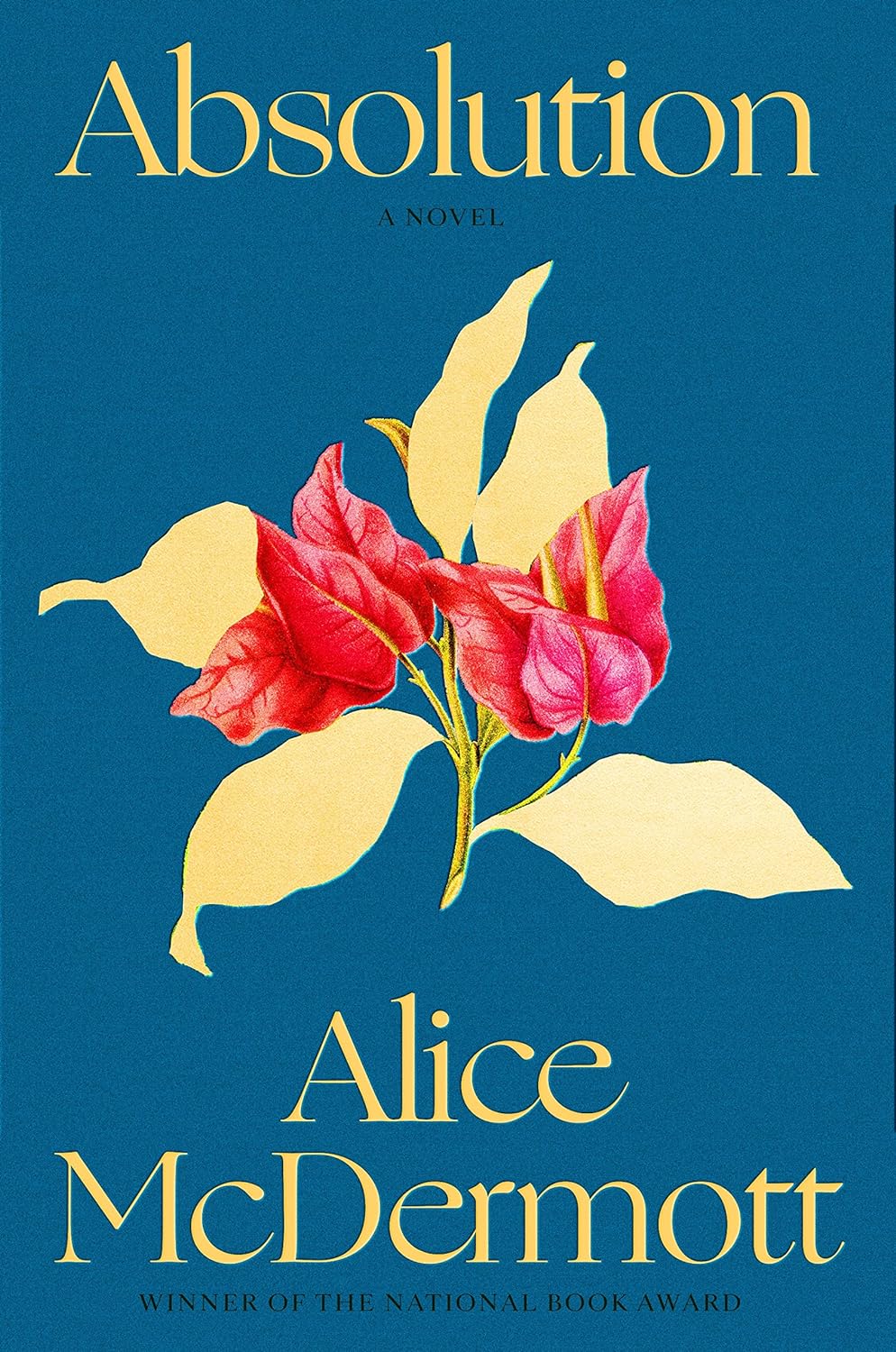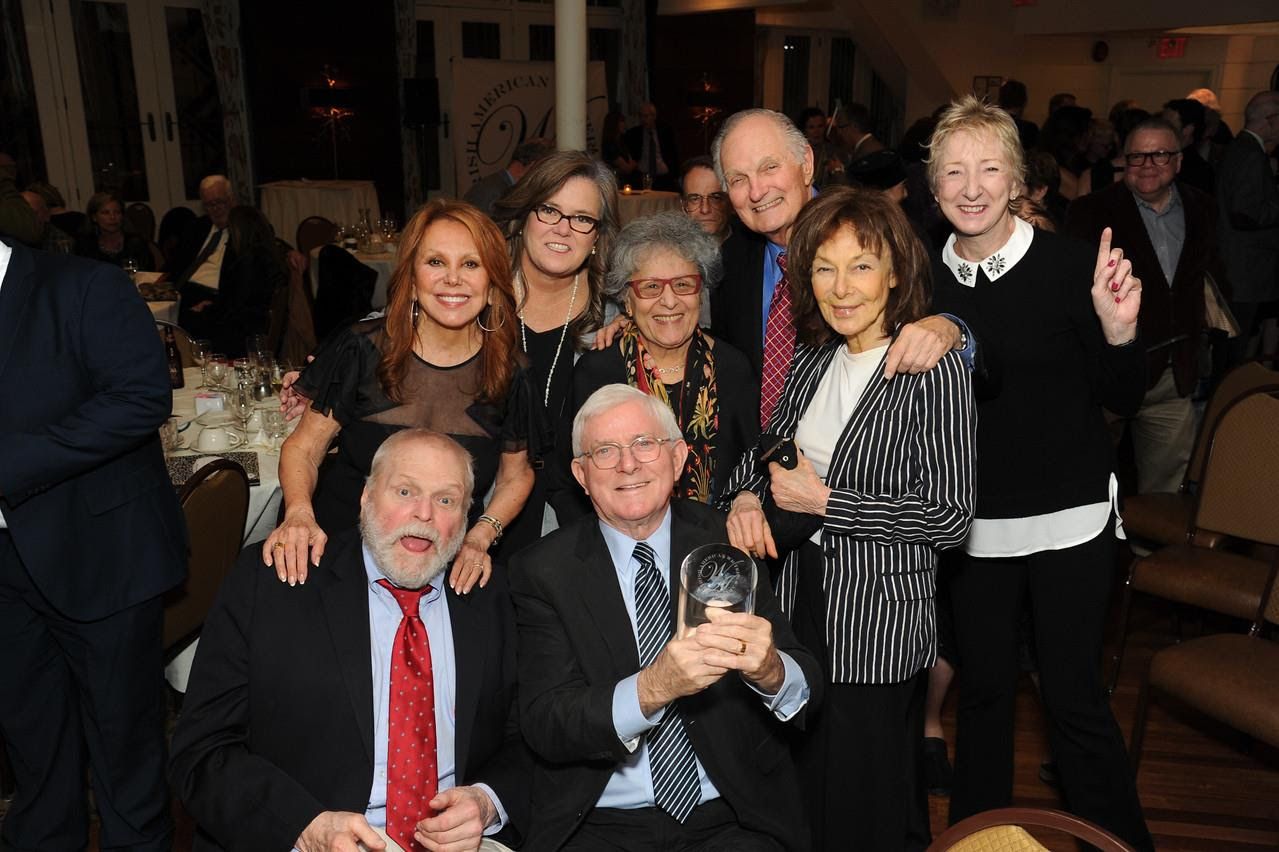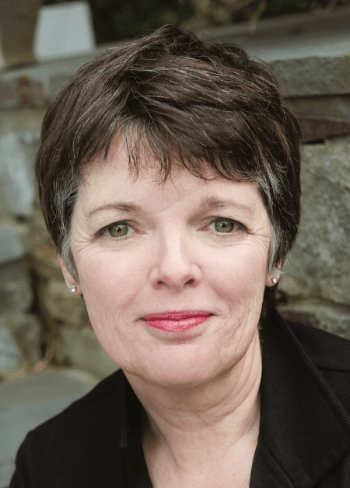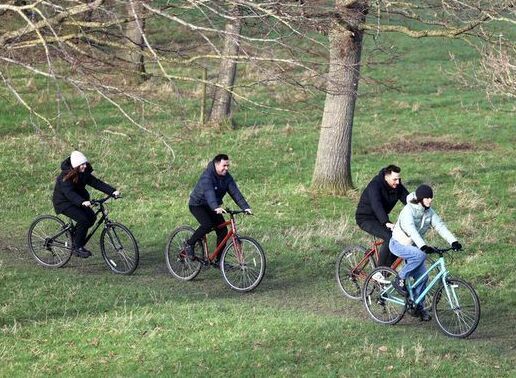Novelist Alice McDermott will receive the 2024 Eugene O’Neill Lifetime Achievement Award at a New York ceremony next Monday evening, Oct. 21.
The Irish American Writers & Artists, Inc. has announced that it will host this year’s cocktail reception and celebration at the Ellington Restaurant, located at 2745 Broadway on Manhattan's Upper West Side. (Tickets are available here)
McDermott’s ninth and most recent novel, “Absolution,” published on Oct. 31 last, was an immediate New York Times best-seller and was named on the best books of 2023 lists of Time, NPR, the Los Angeles Times, Vogue, Good Housekeeping, Esquire, Oprah Daily, Kirkus Reviews and others.
“The writing throughout ‘Absolution’ is masterly,” said the New York Review of Books. “Even the least significant character is deftly drawn as a fellow human.”
McDermott’s fourth novel “Charming Billy” (1998) won the National Book Award for Fiction and three others — “That Night,” “At Weddings and Wakes” and “After This” — were finalists for the Pulitzer Prize for Fiction.
"Alice McDermott exemplifies the literary excellence and accomplishment that our Eugene O'Neill award was created to honor," said Brendan Costello Jr., President of IAW&A. "But in addition to her impressive and prolific creative output, she also stands out as a revered teacher of writing, having taught at many schools and serving as the Richard A. Macksey Professor of the Humanities at Johns Hopkins University.”
Costello continued, “This marks the first time our honoree has been a lauded educator, as well as an artist, since our inaugural awardee, William Kennedy. Perhaps not coincidentally, Ms. McDermott and Mr.Kennedy are also both inductees to the New York State Writers Hall of Fame. We are delighted to honor a writer of her caliber and her stature, and the award is most well deserved.”
Both the 2009 and the 2024 recipients are known largely for fiction set in identifiably Irish-American worlds; in Kennedy’s case, some of his novels involve the Phelan family of Albany, N.Y., including the Pulitzer Prize-winning “Ironweed,” while McDermott’s feature people from Brooklyn, Queens and Long Island.
Kennedy, then 81, and his wife Dana Segarra were guests of honor at the inaugural event at Rosie O’Grady’s Manhattan Club in 2009, not far from the 1888 birthplace of O’Neill, the lone native New Yorker to win the Nobel laureate for literature. Segarra died in 2023 after the couple’s 66 years of marriage.
Late actor Brian Dennehy was the second recipient in 2010; among his successors were Malachy McCourt (2016) and Donahue (2017), who both died this year and will be remembered on Oct. 21. The other O’Neill recipients are Dan Barry (2023), Judy Collins, the late Pete Hamill, Patricia Harty, Larry Kirwan, Joanie Madden, Charlotte Moore and Ciarán O’Reilly, Kate Mulgrew, Peter Quinn and John Patrick Shanley.
The Irish Echo put some questions to the 2024 recipient Alice McDermott as the IAW&A prepared for its big night on Oct. 21.
Irish Echo: Tell us something about your parents and your family background.
Alice McDermott: My parents were both first-generation Irish. My grandparents, born in four different counties, arrived in New York early in the 20th Century, met there, married there, had children there and then died young. Both of my parents were raised by widowed Irish aunts. As I was growing up, our Irishness was clear in our names and our faces, but never made too much of in our daily lives. In middle-class, post-war Long Island, everyone's grandparents were born elsewhere: Poland, Italy, Russia, Greece, etc. We were told to be modest about our Irishness — the implication being that Irish American was the best thing to be, but one mustn't brag.
Did your earliest dreams and ambitions involve writing in some way?
It seems I always read and I always wrote. No ambition in it, really — to be a writer was beyond imagining — more compulsion.
Name the writers that have had the biggest influence on you and those more generally you’ve admired the most.
My early influences must be the usual suspects: Faulkner, Fitzgerald and Hemingway (I'm an American writer, after all). Then Dickens and the Brontes, Virginia Woolf. Henry James (God help me). John Cheever. Yeats and Edna St. Vincent Millay and Wallace Stevens. Reading the short stories of Vladimir Nabokov not only made me want to write - every wonderful thing I read made me want to write - they proved to me that there was nothing else worth doing.
A recent interviewer in the Los Angeles Times said you’ve “become perhaps our most acclaimed chronicler of the Irish American experience, warts and all,” while fellow novelist Jennifer Egan in the New York Times’ review of “Absolution” wrote that your portraits of mid-20th century life have a “particular focus on Irish Americans.” Do you think “chronicler” or “particular focus” is more apt?
The editor in me wonders if a "particular focus" is any different from just a "focus." Now, if Jennifer Egan had written "a peculiar focus," she would have aligned herself with my own family's thoughts about my work, and perhaps led me to feel I was indeed a "chronicler" of the Irish American experience, since we are a peculiar bunch. But it's not the particularity of Irish Americans that I'm out to chronicle — it's the peculiarity of life among us mortals. All of us. The same thing any serious writer is after, I suppose. Whatever their focus.

How has ethnic identity changed from your parents’ time to your children’s?
My parents warned us about "mixed marriages" — which meant to them Irish/Italian, Catholic/Protestant, Republican/Democrat. More ground for disagreement, they counseled. Of course, my siblings and I ignored this advice and it's laughable to my children. But while I suppose my first-generation parents feared the erasure of identity brought about by ethnic mixing — and the extra fodder for marital arguments — my own children see an expansion of their connection to other cultures and histories in their choice of partners — and opportunity for far better food. I guess you could say that in three generations they have become thoroughly American, in the best way: curious, welcoming, eager to share.
A lot of people seemed surprised that much of “Absolution” is set in Saigon in 1963. You’ve responded by saying that the Saigon of 1963 doesn’t exist anymore, “It’s an imagined place, even for people who were there.” Is it the same by implication for the past in places closer to home?
Sure. Any reconstruction of the past, no matter how well-researched or recalled, is an act of imagination. Lost time is indeed that, lost. Only an effort of the mind — intellect, empathy, language — can return it to us, however briefly. One of the great powers of literature.
You’re a Catholic who has been critical of American church leaders. One older progressive-leaning priest interviewed in the Echo recently said he’d like to see them move away from the right and closer to the center in order to represent more of the faithful. What do you think?
I'd like to see the Catholic Church move closer to being Christ-centered. The Christ of the Beatitudes, of "The greatest of these is love." The Christ who championed the poor and condemned hypocrisy, but had nothing at all to say about the inequality of women, or the sinfulness of homosexuals. I'm not sure this move would represent more of the faithful, but it might do us all good to be reminded of where we started.
The U.S. vice-president is the daughter of immigrants from India and Jamaica. What would her election to the presidency tell us about America in 2024?
In my starry-eyed way, I would venture to say that the election of Kamala Harris would demonstrate that America continues on the same, hopeful — starry-eyed? — course it has always purported to follow: land of opportunity and hard-won tolerance, and the often imperfect vision of a more perfect future.
Are you working on your next novel?
Ah yes, always.

Talk-show pioneer Phil Donahue, front row right, was presented with the Eugene O’Neill Lifetime Achievement Award on Oct. 16, 2017. He is pictured beside Brian Dennehy, 2010 O’Neill recipient); middle row: Donahue’s wife Marlo Thomas, Arlene Alda and Elaine May; top row: Rosie O'Donnell, Alan Alda and Patricia Harty, the 2015 recipient. [higginsphotonyc.com]. The author photo of Alice McDermott it by Jamie Shoenerger.








